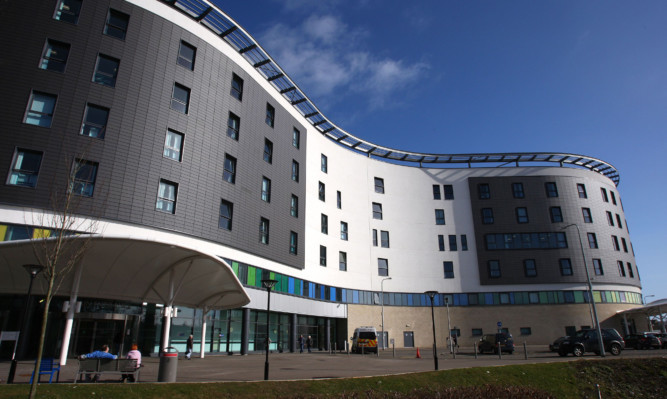Questions have been raised about NHS Fife’s resuscitation policy after a confused elderly patient gave doctors permission to let her die just hours after her family said “every effort” should be taken to ensure she lived.
Concerns have been raised by Lochgelly woman Elizabeth Anderson who claimed her 87-year-old mum Barbara was “bullied” by doctors into agreeing she should be allowed to die at a time when she was vulnerable and her next of kin were not present.
Elizabeth, who contacted The Courier, said she feared that over-stretched NHS resources might mean pressure on staff not to resuscitate seriously ill patients if they take a turn for the worse.
Widowed Barbara, who is a retired school secretary from Lochgelly West Primary, was admitted to the Victoria Hospital, Kirkcaldy, earlier this month with suspected pneumonia and chronic obstructive pulmonary disease (COPD).
Elizabeth said that her mum was “usually very sprightly and had been in good health”.
However, she phoned the doctor after her mum complained she was listless and lacked energy and took to her bed.
Admitted to Admissions Ward One at the Vic, she was given antibiotics intravenously.
But it was when a registrar talked to the family about resuscitation that Elizabeth became concerned.
She said: “I told him that I knew the NHS was overstretched but I hoped everything would be done to save my mother’s life if it came down to that.
“By 9pm that night my mum was in a state of delirium.
“But I discovered from her named nurse the following morning that after we left a consultant and doctor had asked my mum directly about resuscitation and she had replied ‘I don’t want to because of my religion’. But my mum is not religious.
“I confronted the doctor about it and he said my mum had been compos mentis when she made the comment.
“But I asked my mum again there and then in front of the doctor and she said ‘No no don’t bump me off!’
“How many others have been pressured like this and perhaps died?” she said.
NHS Fife medical director Dr Frances Elliot said: “Whilst we are unable to comment on the care of individual patients, we can provide assurance that there are very robust arrangements in place regarding the decision over whether to attempt cardiopulmonary resuscitation (CPR).
“These arrangements include discussion with the patient and, where appropriate, their family members.
“We would, of course, be happy to meet with the family involved and I would urge them to contact our patient relations department in order that we can explore their concerns fully.”
